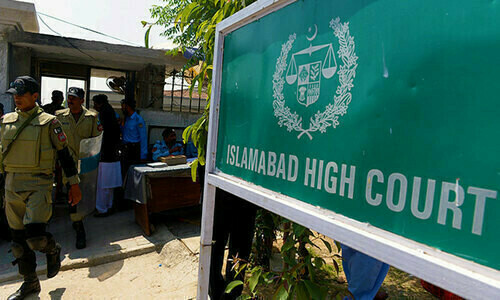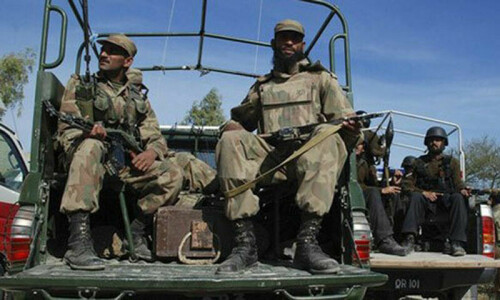NEW YORK, Feb 8: The US media has been extremely critical of Pakistan's decision to pardon scientist A.Q. Khan and expressed scepticism about commitments made by President Pervez Musharraf to control the trafficking of nuclear material.
The New York Times in its editorial "Ending Pakistan's Nuclear Trade" said: "On Thursday, Gen Pervez Musharraf, Pakistan's president, pardoned Abdul Qadeer Khan, the country's chief atomic bomb scientist, after a televised 'admission' that he - alone - was guilty.
Everyone engaged in this piece of theater knows that Dr Khan was reading from a script. Pakistan's military - and that means Gen Musharraf - was, without question, aware of and part of this illicit and perilous commerce. Yet the Bush administration's reaction has been grateful acceptance."
However, the Times said: "If this bewildering contradiction means that the United States has accomplished something behind the scenes, fine. Sometimes realpolitik requires allowing a man like Gen Musharraf, who has been helpful in the war against Al Qaeda and escaped two assassination attempts, to claim to be standing up to foreign pressures."
Nevertheless, the Times issued a caveat: "But there is every reason to be highly skeptical of Gen Musharraf, who dons a uniform and a defiant manner one day and switches to a business suit and soft tones the next.
Whatever deal is being struck should include real efforts to wean the military from power, develop political parties, invest in public education and build civil society. Mr Musharraf says his country is in a transition to more democracy and transparency.
Holding him to his word is one way to make sure that future military leaders are less likely to become merchants of nuclear bomb technology. " On Friday the Washington Post in an editorial dismissed the pardon saying "the attempt by President Pervez Musharraf to 'whitewash his country's marketing of nuclear weapons' technology to rogue dictatorships and sponsors of terrorism comes as no surprise."
It observed that "the General and his government have been lying for years about the illegal traffic. Now that their cover has been blown by evidence supplied to the UN by Libya and Iran, they are attempting to pin all the blame on a single scientist while stonewalling any international investigation."
The Christian Science Monitor in its editorial observed that selling nuclear-weapons technology on the black market should be a crime against humanity, adding, "but not in Pakistan, where first it can get you rich and then, after you're caught by foreigners, a slap on the wrist and a presidential pardon."













































Dear visitor, the comments section is undergoing an overhaul and will return soon.